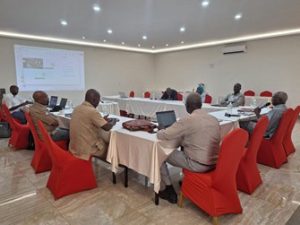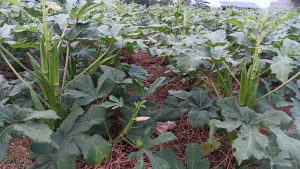Dakar 2 Summit: Development partners pledge $30 billion to boost food production in Africa
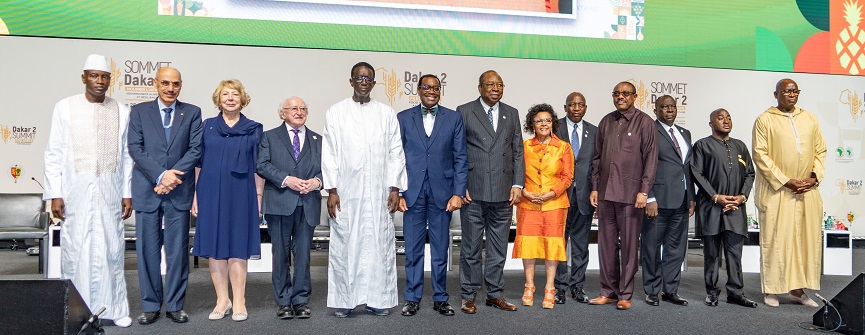
The second Africa food summit in Senegal ended on Friday, with development partners agreeing to commit $30 billion to back the continent’s resolve to boost agricultural productivity and become a breadbasket for the world.
Among the development partners are the African Development Bank which plans to contribute $10 billion over five years, and the Islamic Development Bank, which intends to provide $5 billion.
The Dakar 2 Summit—under the theme ‘Feed Africa: food sovereignty and resilience’—adopted a Declaration on the implementation of the Summit’s resolution, to be submitted to the African Union.
Organized by the Senegalese government and the African Development Bank, the Summit rallied dozens of dignitaries, including 34 heads of state and government, 70 government ministers, and development partners, to work tirelessly on compacts that would transform agriculture across Africa. The President of Ireland Michael D Higgins attended all the three days of the summit.
Addressing the closing plenary, African Development Bank Group President Dr Akinwumi Adesina said the continent and its partners are determined to see results and that implementation is critical to boosting food production and feeding Africa.
“The message was clear: we will work together to strongly support the implementation of the Food and Agriculture Delivery Compacts at country levels,” Adesina said.
He said the heads of state and government committed to setting up presidential high level advisory councils to oversee the implementation of the Compacts, to be chaired by the presidents themselves in their respective countries.
Strong commitment to deliver
“With strong collective determination and resolve, we will work in coordination and partnerships to help countries to deliver success,” he affirmed.
Adesina commended the high turnout at the event. “We came in response to a clarion call out of Africa that it is time for Africa to feed Africa. The clarion call was that the time is right, and the time is now for Africa to feed itself. We came from Africa. We came from around the world.”
He said that Dakar 2 Summit would be remembered as a key moment in Africa’s ability to feed itself and achieve food self-sufficiency and food sovereignty: “We leave with a determination and resolve to feed Africa. With hands together and in locked steps, we will reach our destination: An Africa that finally feeds itself. An Africa that develops with pride.”
In the Dakar Declaration, the leaders agreed to allocate at least 10% of public expenditure to increase funding for agriculture. They also resolved to deploy robust production packages to boost productivity and increase resilience to achieve food security and self-sufficiency.
In his closing remarks, Senegalese Prime Minister Amadou Ba called the summit “a resounding success.”
“Agriculture creates jobs and promotes wealth and health,” he said and called on all citizens of Africa to come together and agree on a joint agenda steered by Africans for Africans.
Prime Minister Ba added: “It’s a paradox that Africa is the largest continent but also the most dependent. Starting now, we must do away with dependency. Africa should consume what it produces and produce what it consumes.”
Global support
Irish President Michael Higgins, who attended all three days of the summit, called for global support for the ‘Feed Africa’ agenda.
“Let us make this century Africa’s Century, one which will see the continent become free from hunger, a shared continent in a global family, one based on the firm foundations of respect for each nation’s institutions, traditions, experiences, and wisdoms,” President Higgins said.
In a video message, Netherlands Director-General for International Cooperation Kitty Van Den Heijden announced that her country would commit an additional €450 million over the next five years to food security programs with a focus on Sub-Saharan Africa. She said the country would also support the African Emergency Food Production Facility of the African Development Bank with $30 million.
“We don’t have time to waste; we need to take action and build more resilient food systems,” she added.
The president of the Islamic Development Bank, Dr. Muhammad Al Jasser, delivered a statement pledging continued support to boost food production in Africa. Canada and Germany also made commitments to support the Feed Africa agenda.
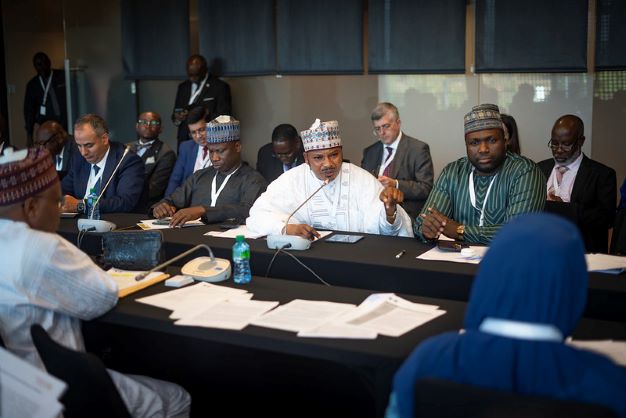
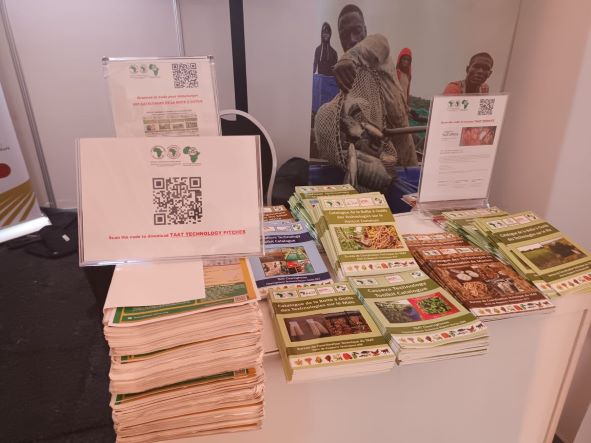
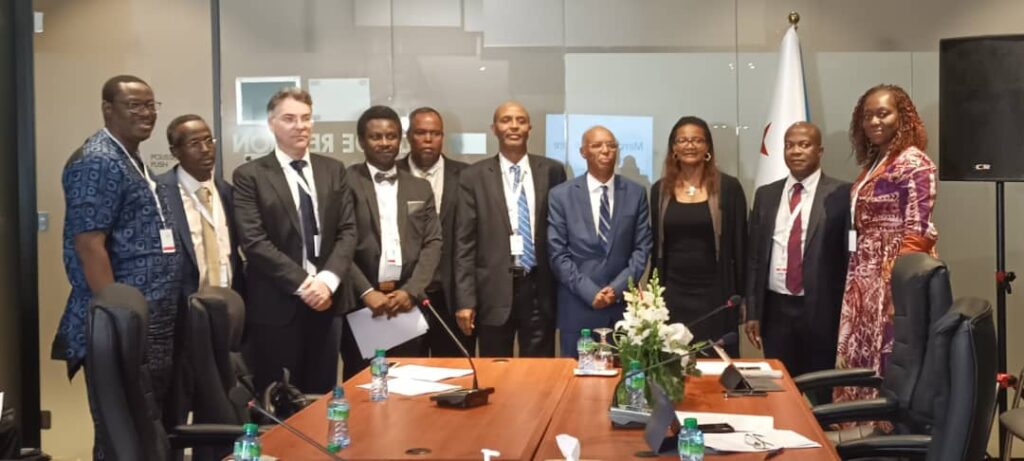
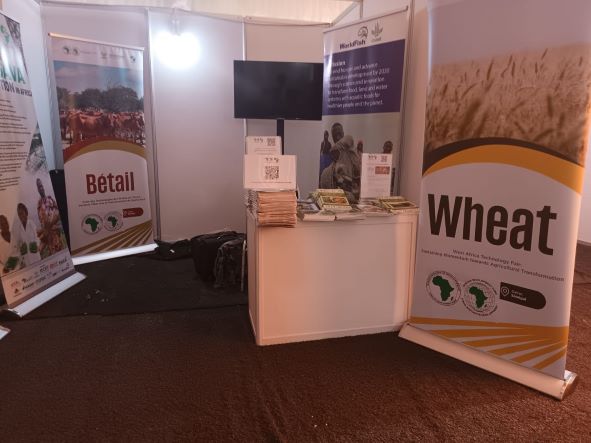
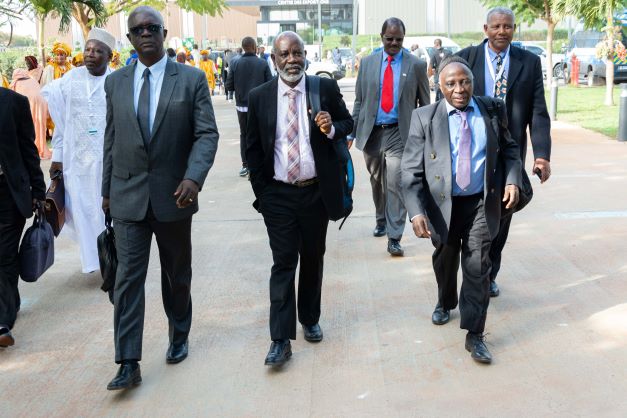
An ecosystem of support from TAAT
A team of experts from the Technologies for African Agricultural Transformation (TAAT) participated actively in all the sessions at the summit. The team which comprised Compact Leaders for Rice, Wheat, Cassava, Maize, Aquaculture, Livestock, Sorghum and Millet, and Policy was led by Dr Chrys Akem and Dr Solomon Gizaw, the TAAT Programme Coordinator and Head of TAAT Clearinghouse respectively. The experts provided inputs in the presidential boardrooms for the respective food and agriculture compacts for the countries.
At the end of the summit, Dr Akem expressed the optimism that TAAT compacts are equitably primed to assist African countries in meeting the targets of the respective food and agriculture delivery compacts. “Just as President Adesina highlighted during the summit, TAAT has helped to rapidly boost food production at scale on the continent, including the production of wheat, rice and other cereal crops, and we are poised to help Africa produce more and more of her own food,” he said. “TAAT has already delivered “heat-tolerant varieties of wheat to 1.8 million farmers in seven countries, increasing wheat production by over 1.4 million metric tons and a value of $291 million and we are ready to replicate these successes across Africa,” Dr Akem added.
Recent Stories
Related Stories
- Seed System: TAAT rallies Stakeholders for a Seed Roadmap for Benin
- African Development Bank approves phase II of TAAT programme
- COTE D’IVOIRE: TAAT and Partners convene stakeholders for a seed roadmap
- TAAT facilitates seed roadmap to boost agricultural productivity in Benin
- BENIN: TAAT and partners convene stakeholders for a seed roadmap


